
The Beginner’s How-To Guide for Dry Camping
The Beginner’s How-To Guide for Dry Camping
Benefits and basics of boondocking in your RV.
By: Scott & Jaime Sichler
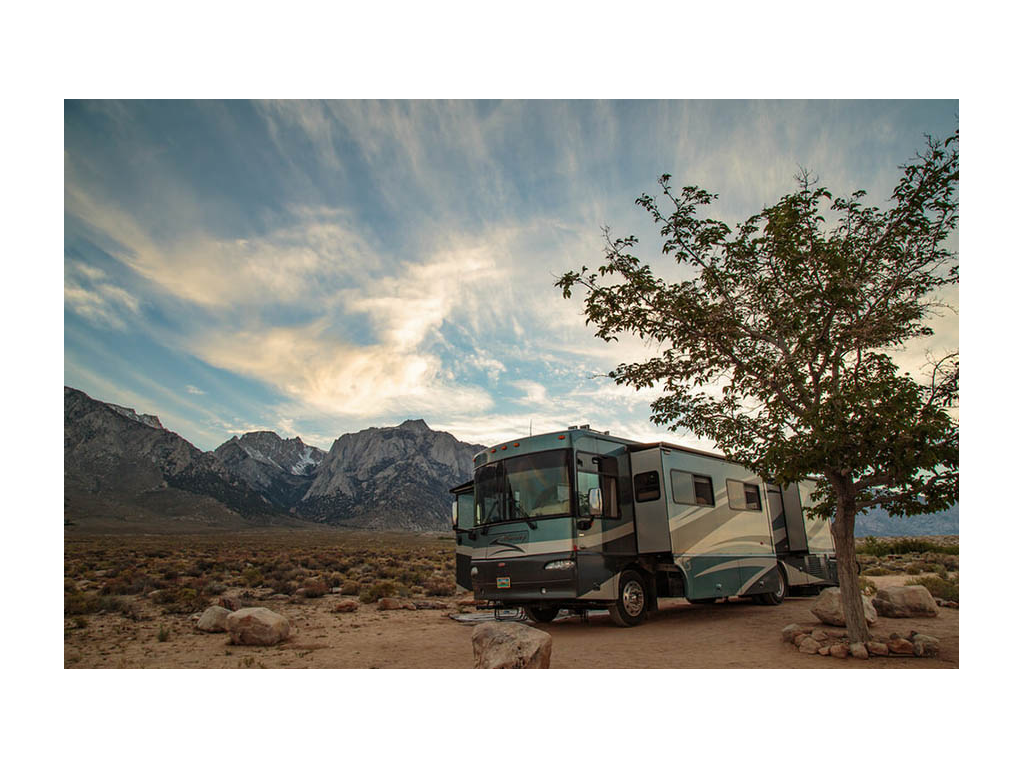
When we first started RVing, we mainly stayed at RV parks and campgrounds with full hookups (electric, water, and sewer connections). As we enter our fifth year of full-time RVing, we find that some of our favorite spots to stay are dry camping without hookups. Why would we choose to forgo the luxury of having hookups? We think freedom might be a good description.
Benefits of Dry Camping
Dry camping opens up a huge range of opportunities and areas to camp or stay the night – from postcard-perfect, drool-worthy sites on public land to a quick free overnight stay at a Walmart parking lot. Free? Yes, there are many places to dry camp with million-dollar views for free.
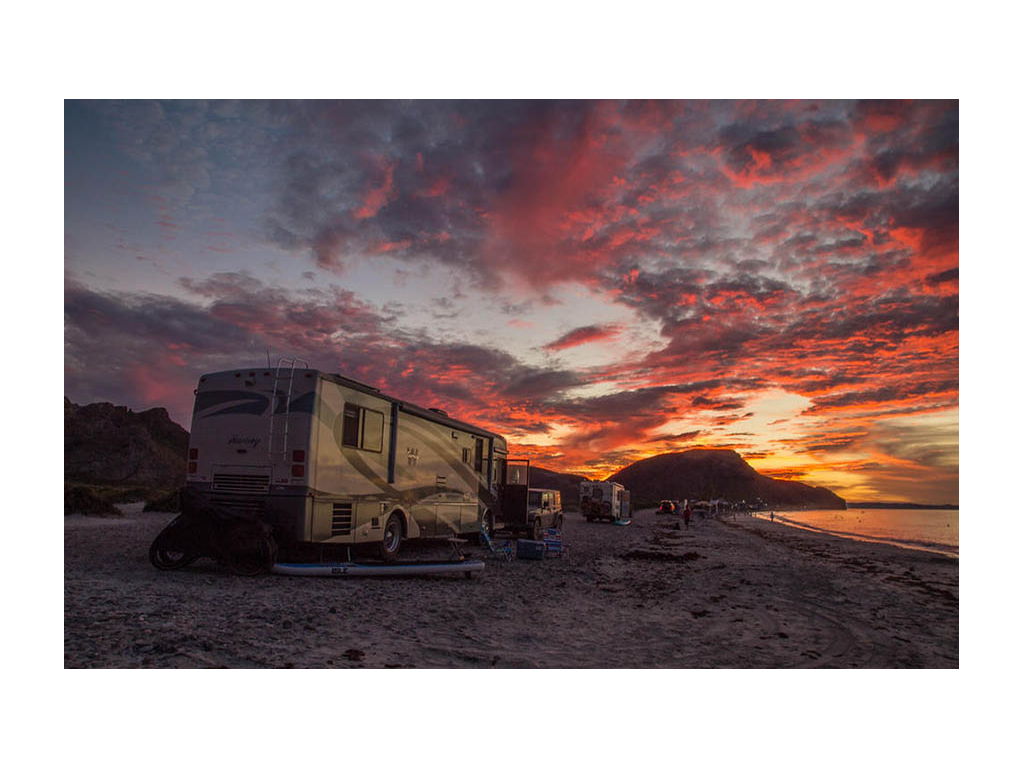
While we are fairly thrifty and free or low cost is a big draw, probably the biggest appeal of dry camping for us is often not needing reservations. This appeals to our style of traveling and not having to over-plan. With the COVID-19 pandemic it is especially beneficial, since many campgrounds were closed or restricted this past spring and when they reopened this summer, they were extremely crowded and reservations were hard to come by.
Finding Places to Dry Camp in Your RV
If all of this sounds interesting, you might be asking how to get started with dry camping and finding places to stay. Fortunately, there's an app (and websites) for that!
Just a quick terminology explanation: you might find free camping also referred to as “boondocking” which generally means dry camping for free in more remote areas. Some RV parks also have lower cost dry camping areas and partial hookups.
Our go-to site and iOS app for camping is Campendium.com. Campendium has filters to make finding free camping easy.
The Free Campsites website also has a lot of options and reviews to help you narrow down places to stay. Popular campgrounds in national parks might require months of ahead planning and reservations, but you can often find free sites nearby.
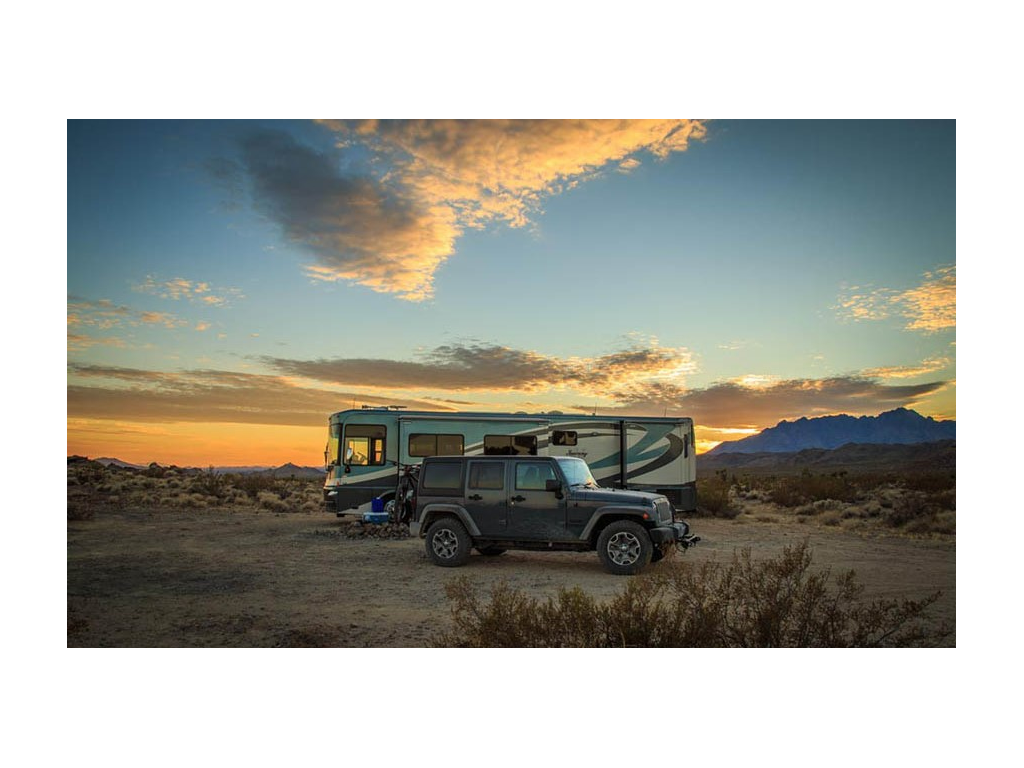
Many free dry camping areas, often referred to as ‘dispersed camping,’ are found on public land managed by agencies including the Bureau of Land Management (BLM) and U.S. Forest Service. It can sometimes be challenging to get to more remote sites and may require driving on unpaved roads or off-road. We check the review sites and Google Maps to see if it looks doable for our larger rig. We also often park The Bago and use our Jeep to scout an area before driving in.
There are some paid membership sites that give you access to free dry camping options as well. Boondockers Welcome is one that offers free overnight parking at private property – often owned by other RVers. Harvest Hosts is another paid membership site that gives you access to a directory of businesses, including farms and wineries, that allow overnight stays. Wine tasting and being able to safely walk back to your RV in a vineyard is an amazing experience.
Walmart, Cracker Barrel Restaurants, and Cabela's are popular places to dry camp for free overnight. At first glance it might seem a little strange to stay in a parking lot, but it's often a convenient place to pull over for the night when we are traveling. Not all cities and stores permit overnight stays, so we always call ahead to confirm. Some casinos on the west coast also have free camping and are a great option in the summer when parks are full.
Don’t forget your fellow RVers are another helpful source for tips and information for dry camping. We belong to Escapees RV Club who host dry camping meetups. Through Escapees we have made some great friends who are willing to share their knowledge and maybe a super-secret spot to dry camp if we ask nicely and promise not to share on the internet.
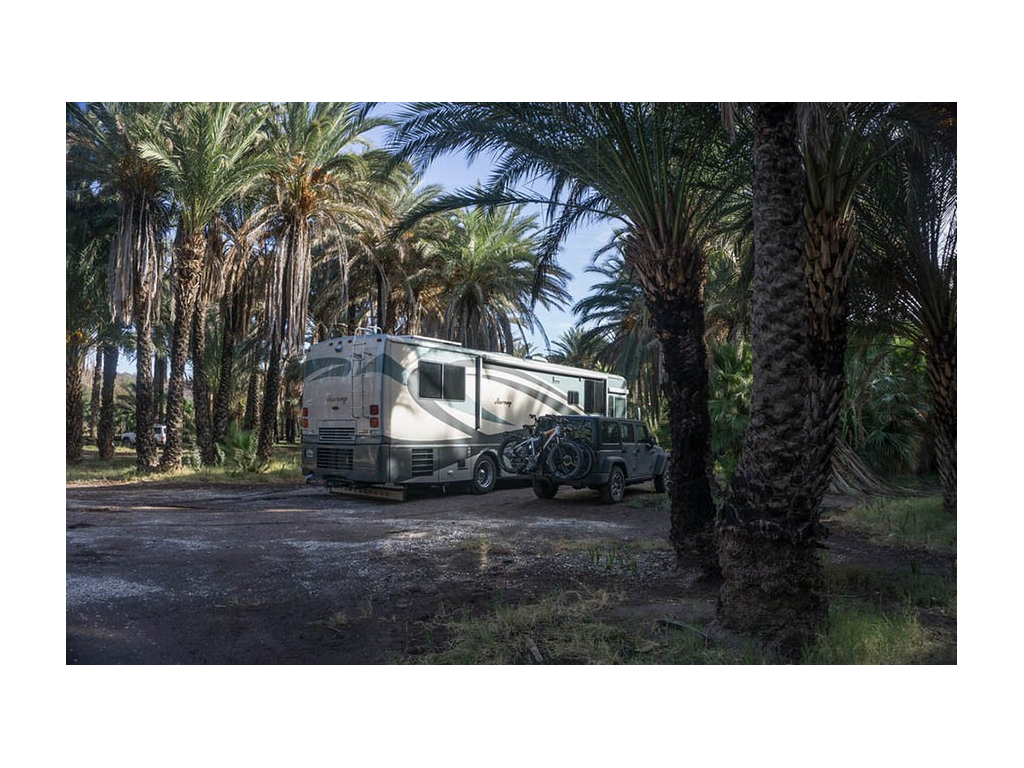
Dry Camping Basics
Before you head out for your first dry camping adventure, you will want to do some planning and preparation.
Water
Water is probably the first consideration when planning to boondock. Winnebago RVs are self-contained and have tanks of varying sizes to fill up with fresh water.
Our 36-ft Class A Journey has a relatively large tank, but we still take conservation measures including taking “navy” showers, minimizing dish washing, and carrying separate drinking water. The grey tank that holds the wastewater is always something to keep an eye on as it is smaller than the fresh water and can fill up quickly from showers and dish washing. We share some of our tips for stretching how long you can use your tanks in this article.
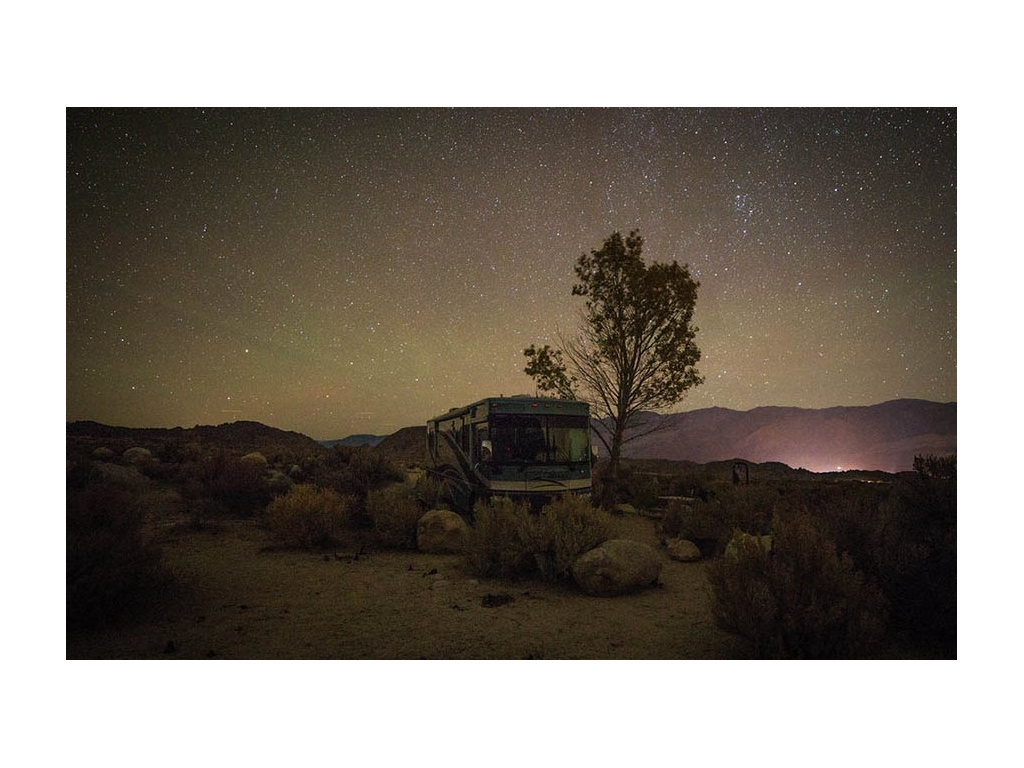
Power
Many Winnebagos have built-in generators that can power everything in your rig, including the air conditioning, but you (and your neighbors) will not want to run them continuously. House batteries can power your 12-volt lights and accessories and, if equipped, an inverter can use the batteries for 110-volt appliances like microwaves and TVs, although they can drain the batteries. Lead acid batteries shouldn't be taken below 50% of their capacity. (Read this article for some tips for managing boondocking and limited power with kids).
Newer lithium ion batteries have a significantly longer life and can be taken down to almost zero, but come at a much higher price point. Solar power systems are very popular with veteran dry campers as they can provide clean and quiet energy. A simple and relatively low cost portable solar panel is a great way to get started if you are unsure of how much you will dry camp. We find it addicting to monitor how much power is coming into our batteries from our solar panels and how much power we use. (Learn more about portable solar panels).
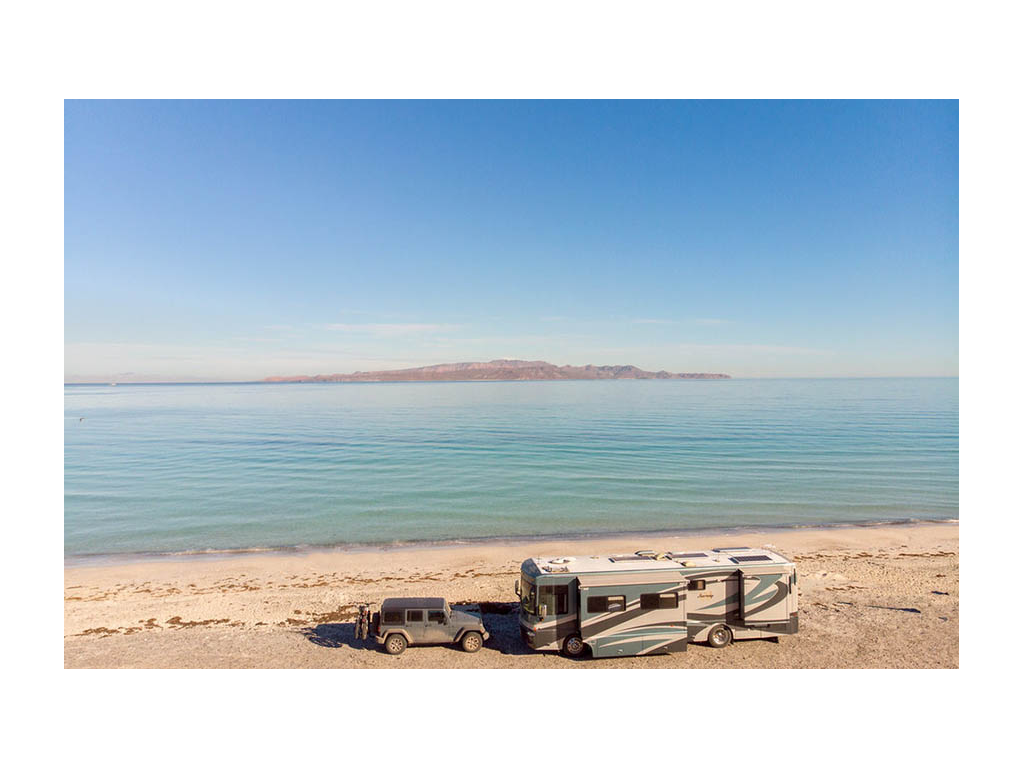
Black Tank
Last but not least of your RV resources to consider is everyone's favorite - the black tank. Luckily, for shorter stays, it’s probably not something you will need to worry about. When it comes time to dumping the tanks, sites like Campendium can also help you find a dump station.
Of course, it should go without saying that you should always pack it in and pack it out to dispose of your trash and waste responsibly.
Hopefully, this information shows you how manageable this kind of RVing can be and whets your appetite for dry camping!
Comments
Comments on this post are moderated, so they will not appear instantly. All relevant questions and helpful notes are welcome! If you have a service inquiry or question related to your RV, please reach out to the customer care team directly using the phone numbers or contact form on this page .